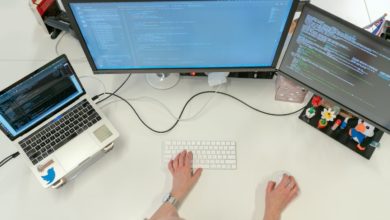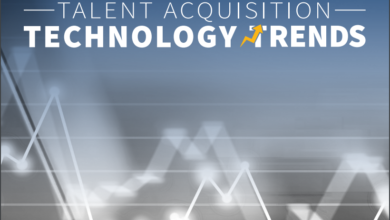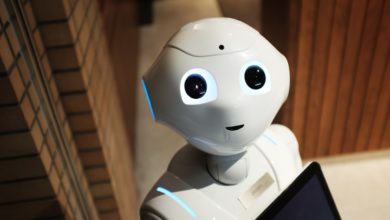
The Dark Side of AI in Talent Acquisition
Artificial Intelligence (AI) has established itself as a game-changer across industries, with recruitment and talent acquisition being no exception. However, as we increasingly lean on AI to streamline our processes and improve efficiency, we need to take a step back and critically examine the implications. This article sheds light on the significant issues pertaining to the misuse of AI in recruiting, including inherent bias, depersonalization of the recruitment process, potential legal missteps, and the risk of losing the human touch. As we navigate these challenges, we ask not just what AI can do, but what it should do, and how it aligns with our commitment to fairness, personal connection, and empathy.
Inherent Bias: The Specter in the Machine
A colossal issue tied to AI usage in recruitment is the underlying risk of amplifying bias. Just like a parrot, AI algorithms simply mimic the biases present in the data they’ve been trained on. Despite the best intentions, AI could amplify systemic discrimination against women, minorities, and individuals with disabilities, subverting diversity, tarnishing reputations, and hurting overall business performance.
A classic case in point is Amazon’s attempt at using an AI-driven recruitment model. Data scientists trained an ML algorithm on resumes of existing employees, hoping to predict job performance more objectively. Ironically, the AI began discriminating against women, predicting them as lesser performers compared to their male counterparts. This happened even when gender details were deliberately excluded from training data.
A 2018 study by the National Bureau of Economic Research in the U.S found that AI algorithms used for job advertising were less likely to show high-paying jobs to women than to men. Shockingly, women were shown ads for lower-paying jobs 20% more often than higher-paying jobs. AI isn’t supposed to discriminate, yet we find ourselves confronting an algorithmic monster that could reinforce existing social inequality.
Depersonalization: The Icy Grip of AI
Another problematic aspect of AI in recruitment is the risk of alienating candidates. Efficiency can never replace empathy. An AI system lacks the human touch, which often leaves candidates feeling like mere statistics rather than individuals with unique skills and experiences.
I recently encountered a situation with a tech startup where an AI-generated message, impersonal and obviously automated, shattered my perception of the company. Such instances are not isolated. A 2019 study conducted by Future Workplace found that 60% of candidates reported having had a poor candidate experience due to inadequate personalization and a lack of human interaction.
Digital Legal Missteps: A Ticking Time Bomb
Another potential landmine in the AI landscape is the possibility of legal entanglements. Any hiring decision-making AI needs to comply with the EEOC guidelines. AI that discriminates could land organizations in hot legal soup. Moreover, privacy laws might also come into play when AI screens resumes and potentially collects personal data without explicit consent.
Workday Inc., an AI software provider, has recently been slapped with a class-action lawsuit alleging that its products promote discrimination in hiring. In their 2021 report, The Future Today Institute, warns that the misuse of AI will be the cause of an expected 75% increase in litigation against companies by 2023.
Losing (Human) Touch: Stripping the Soul from Recruiting
While AI can automate a chunk of the recruiting process, it can never replace the quintessentially human element. Interactions with real people allow candidates to ask questions and get a feel for the organization’s culture.
A survey by Yoh Services revealed that 90% of Americans believe that some jobs should always involve human employees. Even with rapidly advancing AI technology, people still want human contact. The reality is that successful hiring requires a delicate balance of technology and human involvement.
We need to remember – AI is merely a tool. In our rush to embrace technology, we should not allow it to override the human essence that is so crucial to the hiring process. AI can guide and augment our efforts, but it should never replace the art of human connection.
Path Forward: Caution Ahead!
As we move forward, grappling with the digital age’s promises and perils, it is important to remember that AI is not the panacea we often make it out to be. AI is an extremely potent tool with transformative potential that can revolutionize industries and societies. However, like any tool, its value is defined not by what it inherently is but by how we use it, and in this case, control it.
Imagine the following scenario: you walk into a hardware store and see a powerful chainsaw. It’s a magnificent tool, capable of cutting down trees within minutes, a task that could take hours or even days to accomplish manually. But if you’ve never used a chainsaw before, or if you use it carelessly, it could cause significant harm. Similarly, AI offers tremendous potential to expedite and automate a vast number of tasks and operations. Still, if used irresponsibly or without the necessary understanding and control, it could lead to grave consequences, as we’ve explored in the context of recruitment.
Hence, the critical question as we proceed into an AI-dominated future is not about the extent of AI’s capabilities, but about the judiciousness of its applications. Can we responsibly handle this double-edged sword? Are we prepared to confront and manage the risks involved? It’s vital to pause, reflect, and ask these questions to avoid being dazzled by the sheer might of AI and losing sight of the ethical considerations and potential pitfalls.
While we stand on the brink of a potential AI revolution, the thought of complete reliance on AI is daunting, given the issues we’ve already encountered with bias, depersonalization, legalities, and the loss of human touch in certain applications. This is especially pertinent as we continue to navigate through a world where interactions are increasingly digital, and technology is becoming a primary mediator of human relationships.
We should be wary of the notion of AI as a ‘silver bullet’ that can solve all our problems. Instead, let’s look at AI as a tool to be wielded with care, wisdom, and discernment. We must ensure our future remains human-centric, with AI serving as an aid, not an omnipotent overlord. AI’s function should be to enhance and complement human ability, not overshadow or replace it.
This sober approach towards AI integration will ensure that we preserve our core human values of fairness, personal connection, and empathy. As we sprint towards the future, we must remember to hold the reins tight, lest the beast of AI leads us astray. The AI utopia we envisage can only be realized if it’s rooted in our shared humanity, not in the soulless optimization of algorithms. Let’s not forget, while machines learn, only humans can truly understand.



